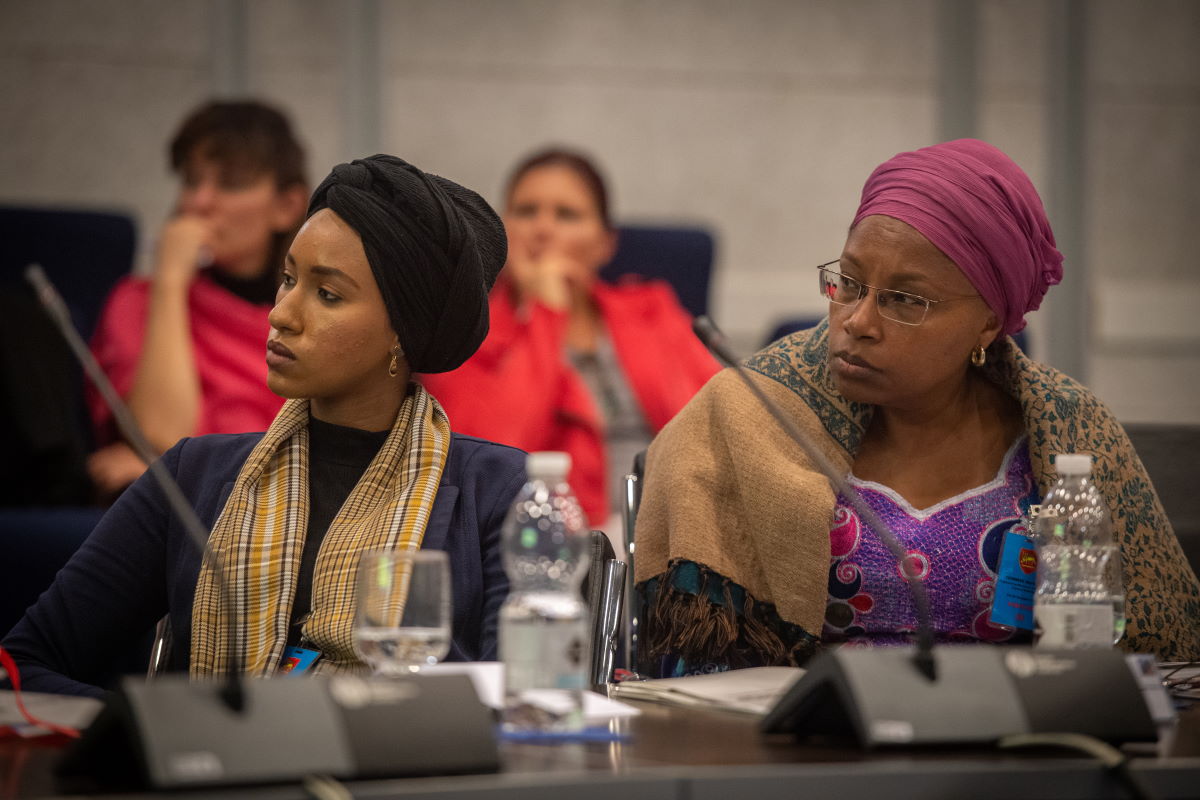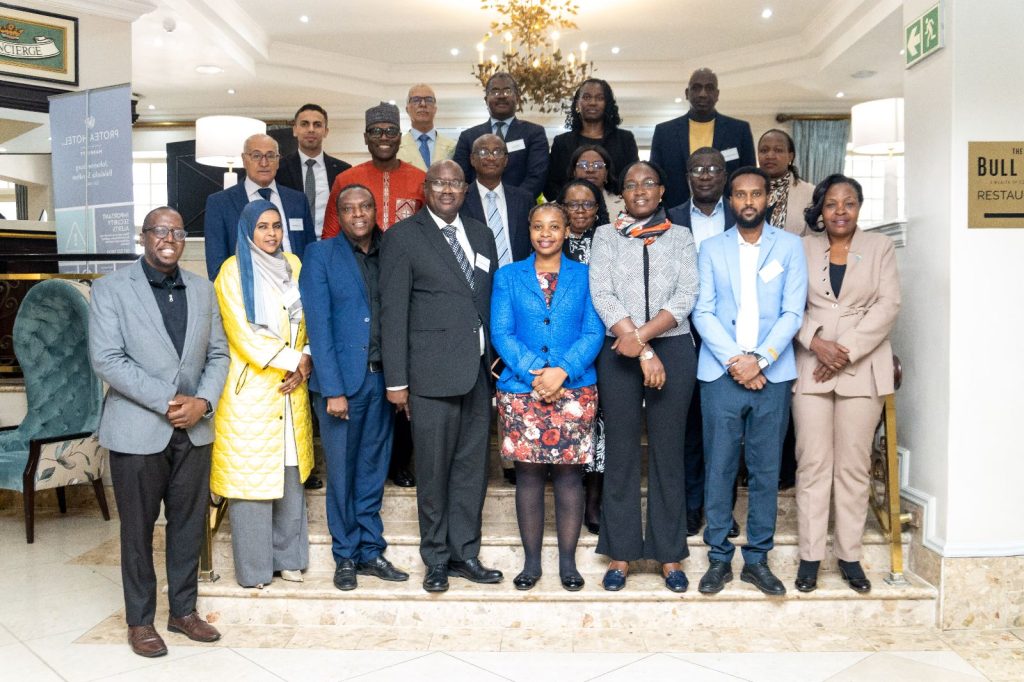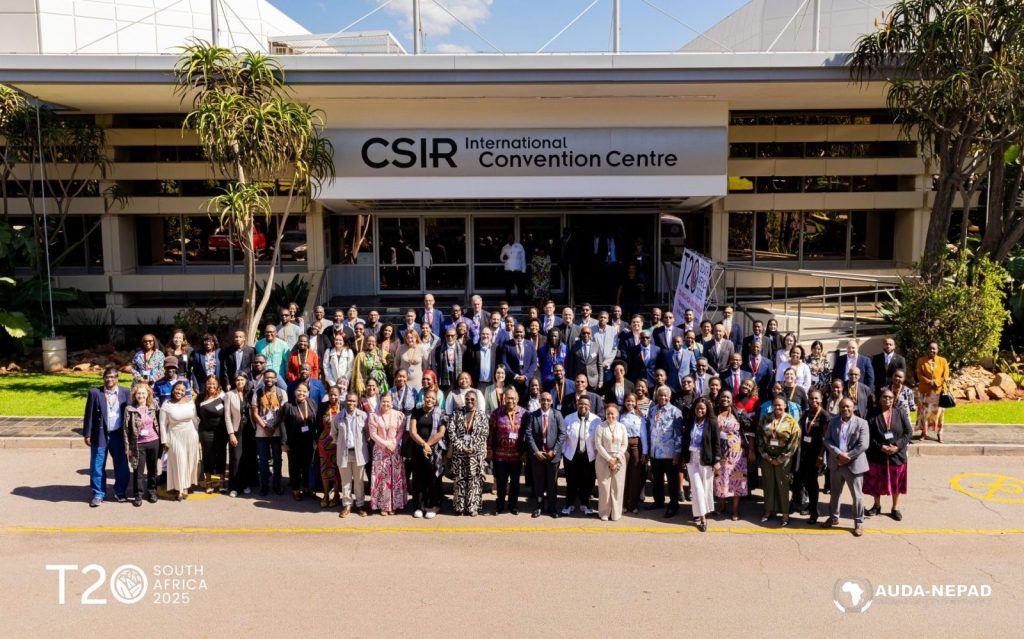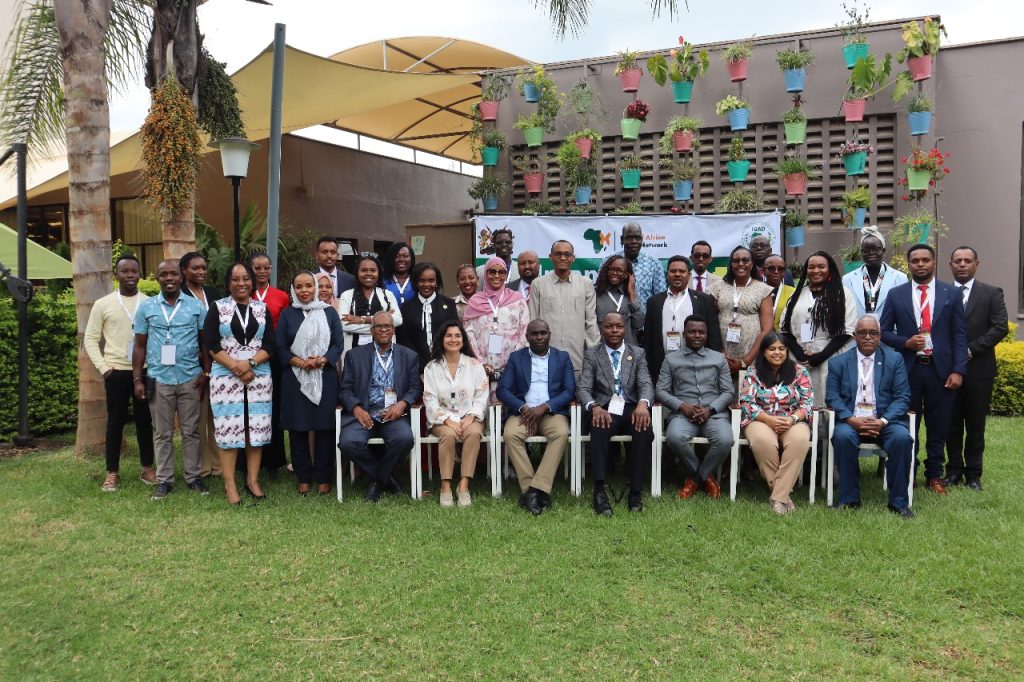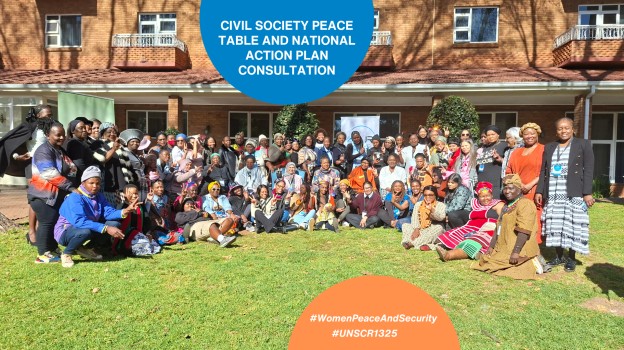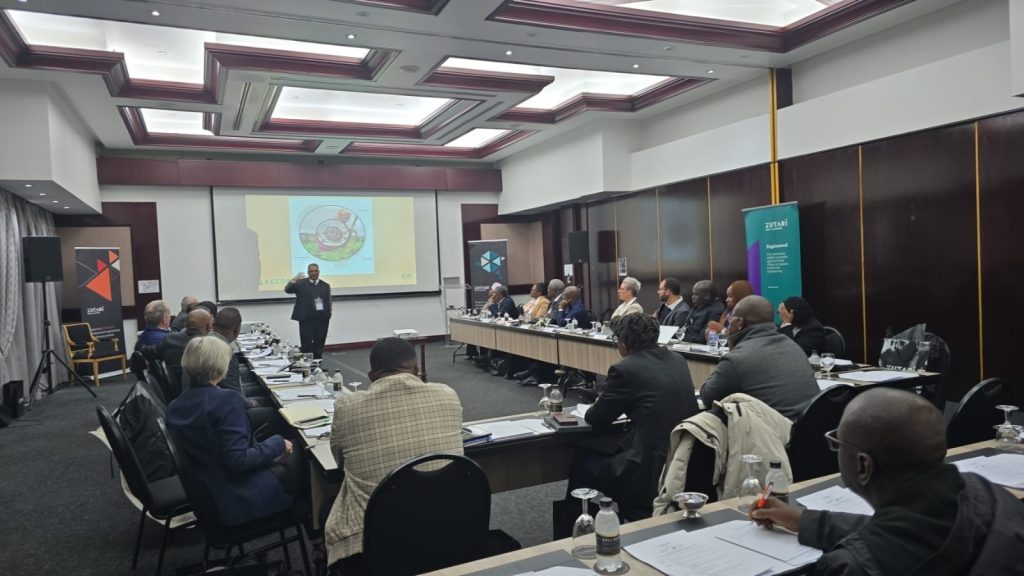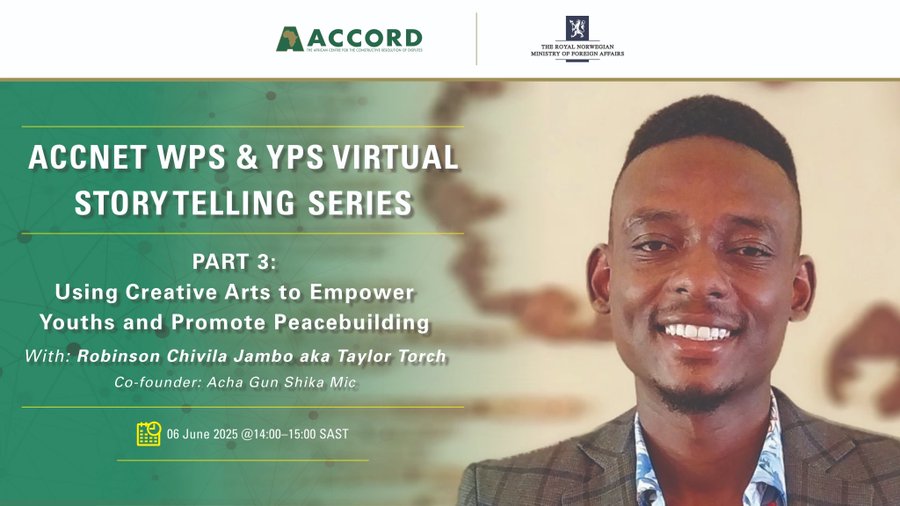ACCORD, in partnership with the African Union (AU) and Sida, co-hosted the second knowledge sharing session of the FemWise-Africa network, titled, “The Power of the Collective: Insights for Peacebuilders.” The session included a facilitated conversation between Ms. Pravina Makan-Lakha, ACCORD’s General Manager of Operations and Special Adviser on Women Peace and Security, and Ambassador Said Djinnit, former Special Envoy of the United Nations (UN) Secretary-General for the Great Lakes Region of Africa. Following their conversation, the discussion was opened to participants to pose questions to Ambassador Djinnit and Ms. Makan-Lakha and allowed participants to provide their profound experiences and insights.
The knowledge sharing session is part of a larger Capacity Building Initiative hosted in collaboration with FemWise-Africa, ACCORD and Sida, between October to December 2020. These sessions are designed to provide members of Femwise-Africa, Gender is My Agenda Campaign (GIMAC) and the African Women Leaders Network (AWLN) with an opportunity to collectively reflect on their experiences as peacebuilders. Using a blended learning approach, these sessions include facilitated experience sharing on videos of peacebuilders testimonies and panellists sharing their best practices. These sessions are guided by thematic experts and members can learn from each other’s lived experiences as peacebuilders, conflict prevention actors, and mediators.
A common thread throughout the knowledge sharing session was the need for the dynamism of women to be infused into conflict prevention and mediation but also the need for cooperation between men and women in furthering the women, peace and security agenda. There is a need for a ‘he for she’ agenda, whereby men champion the transformation of the conflict management space to be fully inclusive of women. It was underscored that men dominate in mediation, but men do not dominate mediation, men typically exude domination in all aspects of life and this is not necessarily as a result of a higher aptitude but rather a product of an entrenched patriarchy, which needs to be urgently addressed.
Ambassador Djinnit stressed that the disposition to prevent conflict or to mediate is within any human being who wishes to be a part of the solution, rather than a part of the problem. He added that this starts in the home first before spreading to the community, the region, the nation, the continent, and the world. To acknowledge that mediation happens at all levels, and in all spaces, is to acknowledge the significance of a network like FemWise-Africa. Ambassador Djinnit emphasised the importance of women being involved in peace efforts that produce sustainable peace but also drew attention to the fact that this is often not the case due to the cultures, attitudes and a deep-rooted system of patriarchy in Africa. Thus, women need to be more assertive in this space and create an environment in which they can hold the highest political offices as well as represent a large grassroots movement of politically conscious and involved women.
Ambassador Djinnit continued to explain that the FemWise-Africa Network is in a powerful position to influence conflict prevention on the continent, but women’s networks must accordingly be alive to the reality of the complexity and difficulty involved in achieving long-lasting peace. He told participants that he believes there is a solution to every problem, regardless of how complex it may be, and that having this belief is essential in preventing and mediating conflict. Women mediators should ensure that they are impartial and are people of integrity, but most essentially, they must have tenacity and a personal conviction in finding solutions to all challenges. Ambassador Djinnit highlighted that all conflicts have regional and international ramifications but it cannot be solely the job of multi-lateral organizations like the AU, UN or Regional Economic Communities to solve the problem, this is because no single person or body can solve the issues in Africa alone.
Building partnerships for peace across all areas are key to finding solutions, and almost all successes in conflict prevention and mediation have come as a result of regional or continental partnerships. In fact, stressed Ambassador Djinnit, there is no situation in which competition over solving problems is useful or effective. To that end, compacts must be built between men and women in the conflict management space so that women may lead mediation efforts. To date, there has been no woman-led mediation process in Africa and yet women are actively mediating at the grassroots level in almost all conflict zones. Ambassador Djinnit concluded stressing that it is imperative that initiatives like FemWise-Africa be leveraged to produce the skills and capacity for women to involve themselves in, and lead, mediation processes at all levels, and not only at the grassroots level.
ACCORD is grateful to Ambassador Djinnit for giving his time to join us for the knowledge sharing session. We look forward to hosting more of these sessions over the coming weeks, as ACCORD remains dedicated to supporting the meaningful engagement and inclusion of women in peace and mediation efforts; a commitment reflected in ACCORD’s institutional pillars and its support to the AU, Regional Economic Communities/Regional Mechanisms (RECs/RMs) and civil society organisations. Follow ACCORD on Twitter, Facebook, and Instagram to stay informed as to when the next sessions will be held.

